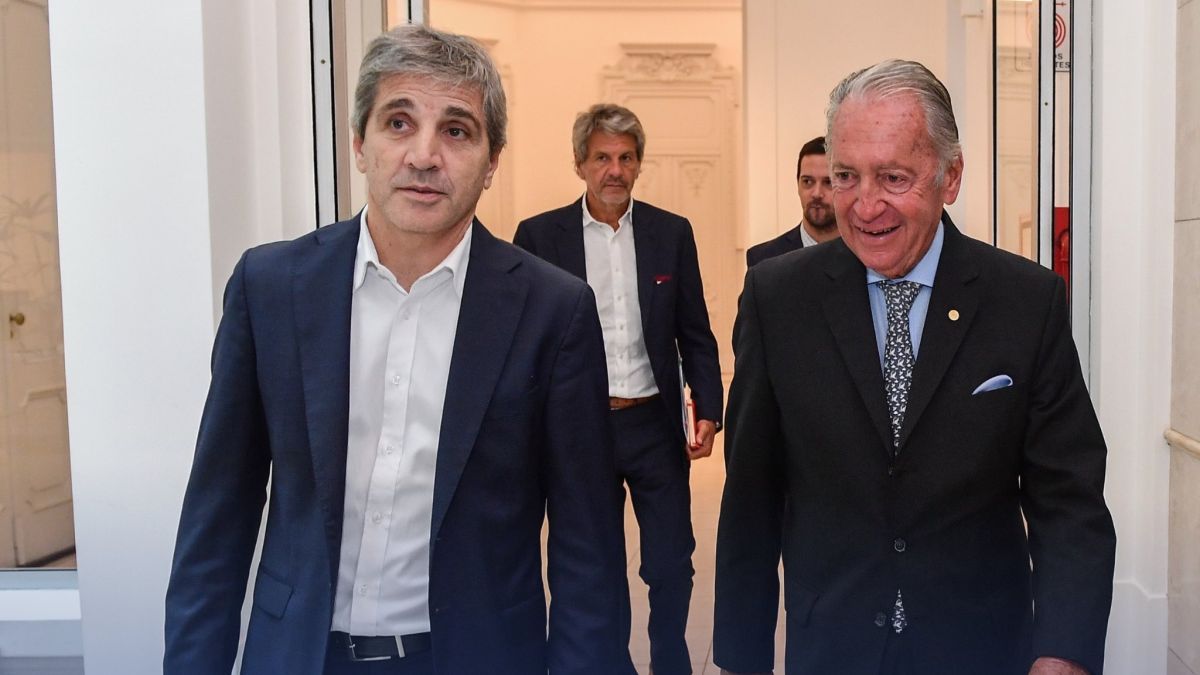While Javier Milei promised biggest tax cut and a policy of fiscal and monetary adjustment, The industrialists demanded equality of conditions that large companies will have for the RIGI and warned about the opening of importsThe exchange took place during the celebration of Industry Day organized by the UIA.
At the event in which the September 2, 1587 when Argentina achieved its first export to Brazil, The President focused his speech on the reduction of the PAIS Tax, which he described as “disastrous” and guaranteed its elimination in December. In turn, he promised the industrialists that will accompany them in the process of commercial opening that will be given “when the structural conditions are met.”
Meanwhile, requests from the sector were not long in coming. For the head of the UIA, Daniel Funes from Riojathere is an urgent need for an SME law so that the Argentine cost “do not make competition against countries that do not export taxes unviable”, while “They have infrastructure that allows them to reduce costs”, labor regimes “adapted to the new productive realities” and protective measures “Agile in the face of unfair competition”.
The same line of discourse was followed by the president of Argentine SMEs Industrialists (IPA), Daniel Rosatoconsidering “very important“Reactivate the industrial sector and generate competitiveness through a SME Law or mini RIGI”to match competitive advantages”.
In this sense, for the executive director of Argencon, Leandro Mora Alfonsininitiatives such as the RIGI and its recent regulation “They show that there is no plan behind it“since the repeal of supplier development policies and their lack of requirements in the scheme”They prove to be going against the grain of the world”.
And what should Argentina focus on? As a proposal, for the economist specialized in industrial development it is important to enhance the links and potentialities of the industry manufacturing, agro and bio industry, knowledge economy, energy, mining and tourism.
Another factor that appeared in the industrialists’ speech is linked to trade openness through the lowering of PAIS tax from 17.5% to 7.5%. For Rosatoit is important “manage foreign trade“because the prices of imported products”do not compete with local prices”.
From another place, he marked the same thing Paolo Roccaowner of the group Techintat a steel congress held in Sao Paulo (Brazil) two weeks ago: “Chinese imports help control inflation in our countries, but they have a negative impact on our industrial sectors; and they have even worse effects on investment and growth,” he explained and admitted: “We were probably too optimistic with Milei, thinking that this could be done in the short term“.
The context: industry decline
The discussion on the implementation of an industrial program takes place in a context of alarming numbers for the sector. In interannual terms, the Center for Political Economy of Argentina (CEPA) highlights that the industry collapsed 20.4% in June, constituting the worst record of 2024.
Including the month of July, the data on SME industrial production from CAME confirms the declining trend: fell 17.8% year-on-year.
Additionally, the use of installed capacity accounts for how many machines are “unused” due to the drop in sales. In June, the Industrial installed capacity utilization (ICU) was 54.5%. The figure is practically the same as in June 2020, in the midst of the pandemic (53.3%).
Regarding the impact on the labor market, between November 2023 and June 2024 decreased by 2.8% the number of workers registered in industrial production units, with a Loss of almost 35 thousand jobs.
Source: Ambito
I am an author and journalist who has worked in the entertainment industry for over a decade. I currently work as a news editor at a major news website, and my focus is on covering the latest trends in entertainment. I also write occasional pieces for other outlets, and have authored two books about the entertainment industry.




